Empowering Communities to Lead Change
Vanuatu: A story of change influenced by Dive Against Debris® data
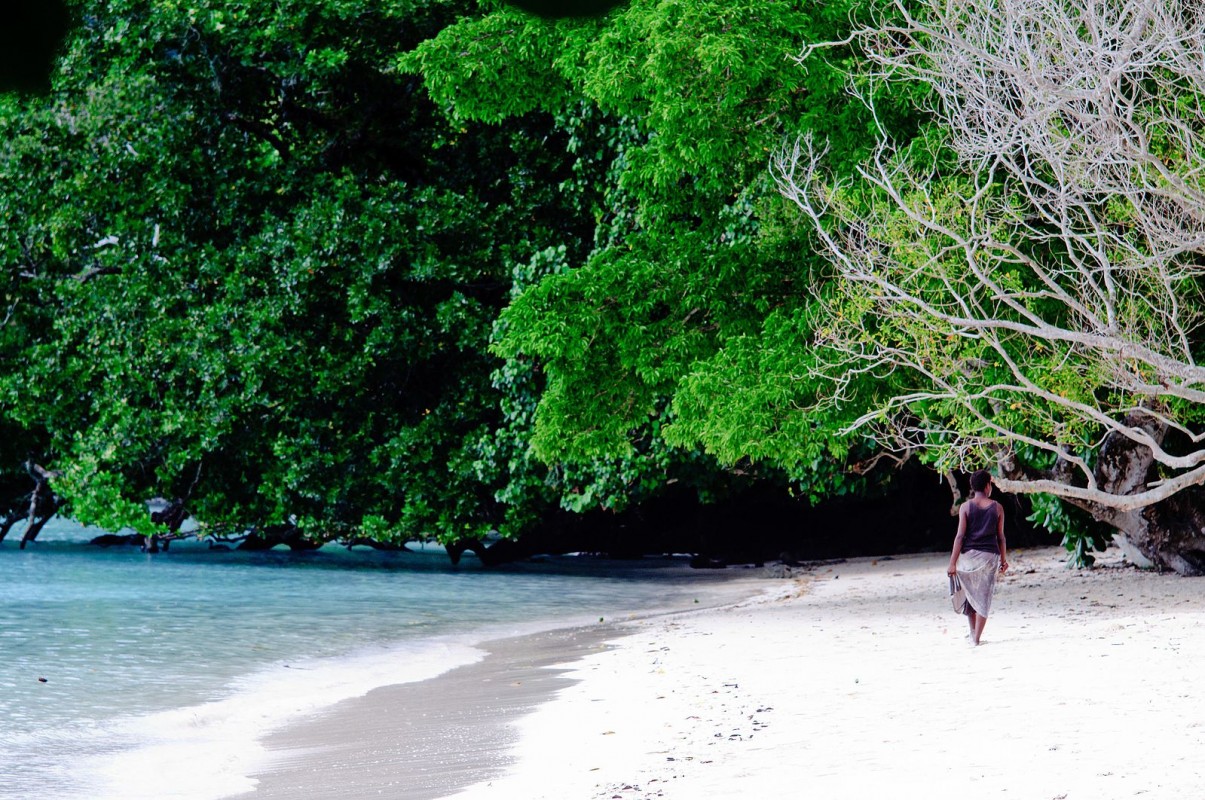
It may seem like we’ve been talking trash for decades. Working towards long-term, meaningful solutions to the global marine debris crisis at local, national and international levels has been a priority for Project AWARE® since its inception in the early ’90s. But in 2018, our work and fight against marine debris hit two significant milestones:
- One million pieces of debris removed from the ocean and recorded to our global Dive Against Debris® dataset of underwater debris
- A plastic ban influenced by Dive Against Debris® data and dive leaders committed to making a difference in their local communities for global impact
Why does underwater marine debris data matter? And more importantly, what stories of change, impact, and hope is the data telling us?
Data Matters
Dive Against Debris surveys not only provide immediate relief to undersea habitats and marine life through the direct marine debris removal actions of participating dive volunteers, the data submitted contributes to long-term solutions by building the evidence necessary to advocate for change.
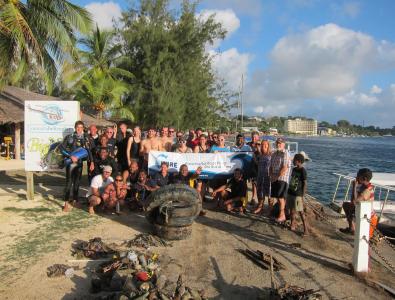 In order to address the marine debris issue at a higher level, including enforcing stringent legislation, informing policy change and improving waste management, data is needed to build a strong case for support. Unfortunately, when it comes to marine debris and informing policy change if the issue is not quantified, it doesn’t exist. No data, no evidence, no stories of change to tell.
In order to address the marine debris issue at a higher level, including enforcing stringent legislation, informing policy change and improving waste management, data is needed to build a strong case for support. Unfortunately, when it comes to marine debris and informing policy change if the issue is not quantified, it doesn’t exist. No data, no evidence, no stories of change to tell.
Behind each and every Dive Against Debris® survey submitted since 2011 when the citizen science program launched, there is a story that proves that when people and communities come together change is possible.
Leading the Way: Positive Change in Vanuatu
A ban on non-biodegradable plastic bags came into force on the beautiful South Pacific islands of Vanuatu in early 2018. Vanuatu's Council of Ministers agreed to stop single-use bags being imported and manufactured in the country after a study around the main island of Efate conducted by environmental marine coastal groups including PADI® Dive Centre Big Blue, showed up a large amount of plastic litter.
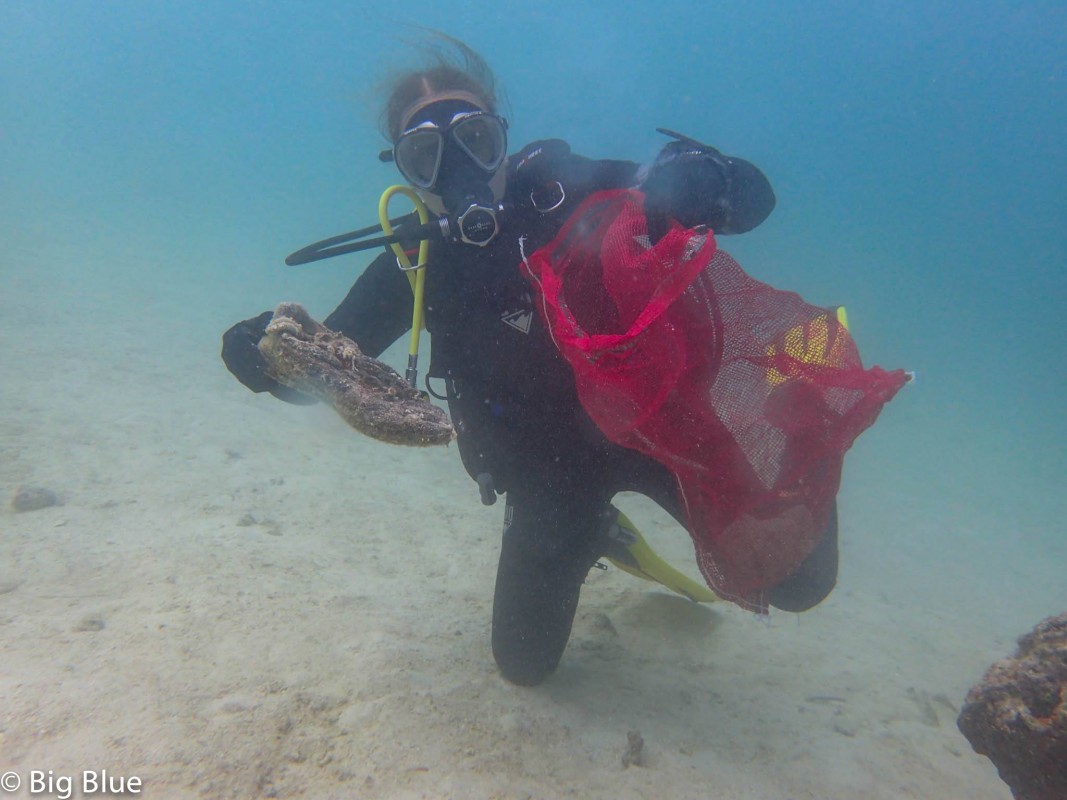 Christina Shaw, at Big Blue, organizes Dive Against Debris surveys once every three months. She's been surveying dive sites in Vanuatu since 2013. Despite the tropical forests, magnificent underwater coral gardens, caverns, and drop-offs, her volunteer dive team have removed and recorded over 4,000 kilograms of trash. Their efforts to clean up and help protect marine life didn’t go unnoticed. Their Dive Against Debris data combined with collaboration and efforts from local groups and the Vanuatu Government helped champion change.
Christina Shaw, at Big Blue, organizes Dive Against Debris surveys once every three months. She's been surveying dive sites in Vanuatu since 2013. Despite the tropical forests, magnificent underwater coral gardens, caverns, and drop-offs, her volunteer dive team have removed and recorded over 4,000 kilograms of trash. Their efforts to clean up and help protect marine life didn’t go unnoticed. Their Dive Against Debris data combined with collaboration and efforts from local groups and the Vanuatu Government helped champion change.
While Vanuatu is small (about 250,000 people), all plastic is imported, so not only is the plastic bag ban reducing plastic waste from islanders, but it reduces the overall carbon footprint for getting the bags to Vanuatu in the first place.
But this is only the first step, and while the ban is no doubt a good thing, it's just a tiny step in the right direction. What has happened since the plastic bag ban is the real story.” Says Ian Campbell, Project AWARE Associate Director of Policy and Campaigns.
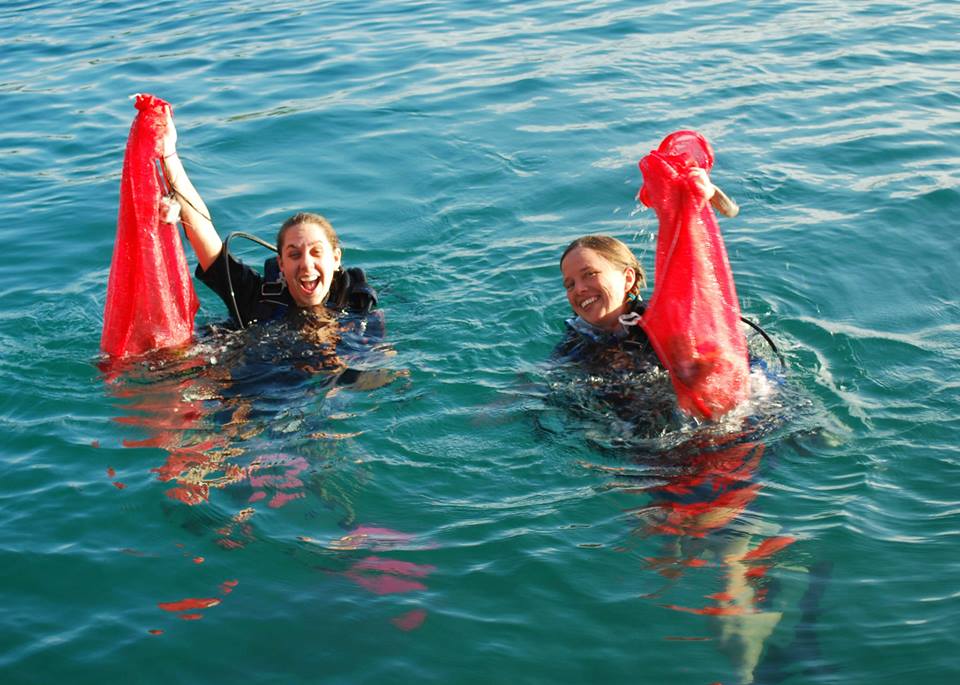 In April 2018, the Heads of Government of all Commonwealth countries, 53 in total, met in the UK (they do this every few years). These countries include some of the smallest (Tuvalu in the South Pacific, population 11,000) to some of the biggest (Canada, Australia, India, United Kingdom, and New Zealand) as well as 19 African countries. As a direct result from the plastic bag ban, Vanuatu stepped forward to become a "Champion Nation" in the Commonwealth, leading global developments to tackle marine pollution, partnering with the UK. They helped draft the Commonwealth Blue Charter, which sets out high-level goals to tackle issues such as pollution, overfishing, fisheries, ghost gear, biodiversity loss, and other issues.
In April 2018, the Heads of Government of all Commonwealth countries, 53 in total, met in the UK (they do this every few years). These countries include some of the smallest (Tuvalu in the South Pacific, population 11,000) to some of the biggest (Canada, Australia, India, United Kingdom, and New Zealand) as well as 19 African countries. As a direct result from the plastic bag ban, Vanuatu stepped forward to become a "Champion Nation" in the Commonwealth, leading global developments to tackle marine pollution, partnering with the UK. They helped draft the Commonwealth Blue Charter, which sets out high-level goals to tackle issues such as pollution, overfishing, fisheries, ghost gear, biodiversity loss, and other issues.
And the good news doesn't stop there! Just because the shops and stores have stopped selling plastic bags in Vanuatu, doesn't mean the need for ways to carry goods has disappeared. What has and is happening is truly marvellous.” Ian Campbell adds.
The lack of plastic bags has created a micro-economy for local communities to start making bags and baskets out of traditional materials, such as palm and banana plant leaves. These are being sold to locals and visitors, and, because they are made from 100% naturally occurring materials, they don't require recycling facilities, which many small countries don't possess. These baskets and bags last for a few weeks, so they are even better than bags for life as people will continue to need them, which means a continued economy for them.
Ralph Regenvanu, Vanuatu Minister of Foreign Affairs, was instrumental in the plastic ban but none of this would have happened without strong leadership not only from the government but also from the community.
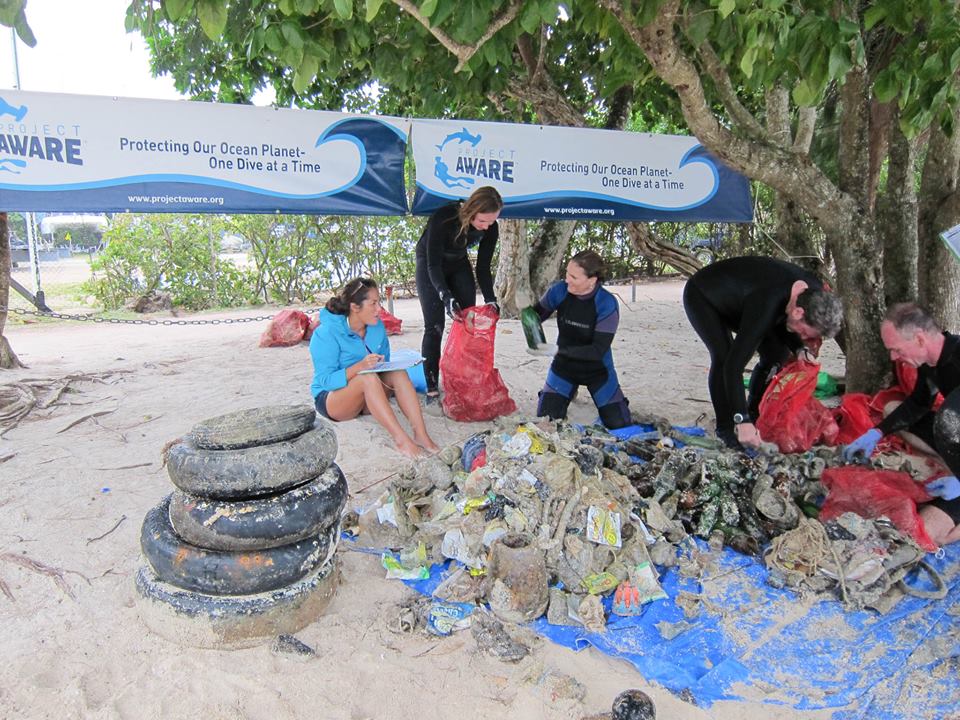 He has now also sealed a UK and Vanuatu-led Commonwealth Clean Oceans Alliance to join forces in the global fight against plastic pollution and in November 2018, Vanuatu took a leadership role at the United Nations International Maritime Organization (IMO) which adopted an Action Plan to address marine plastic litter from ships.
He has now also sealed a UK and Vanuatu-led Commonwealth Clean Oceans Alliance to join forces in the global fight against plastic pollution and in November 2018, Vanuatu took a leadership role at the United Nations International Maritime Organization (IMO) which adopted an Action Plan to address marine plastic litter from ships.
Christina Shaw, at Big Blue, continues to work more with the local authorities and businesses to reduce the use of more single-use plastics in the future. The ban now also extends to polystyrene takeaway boxes which are commonly used for carrying food.
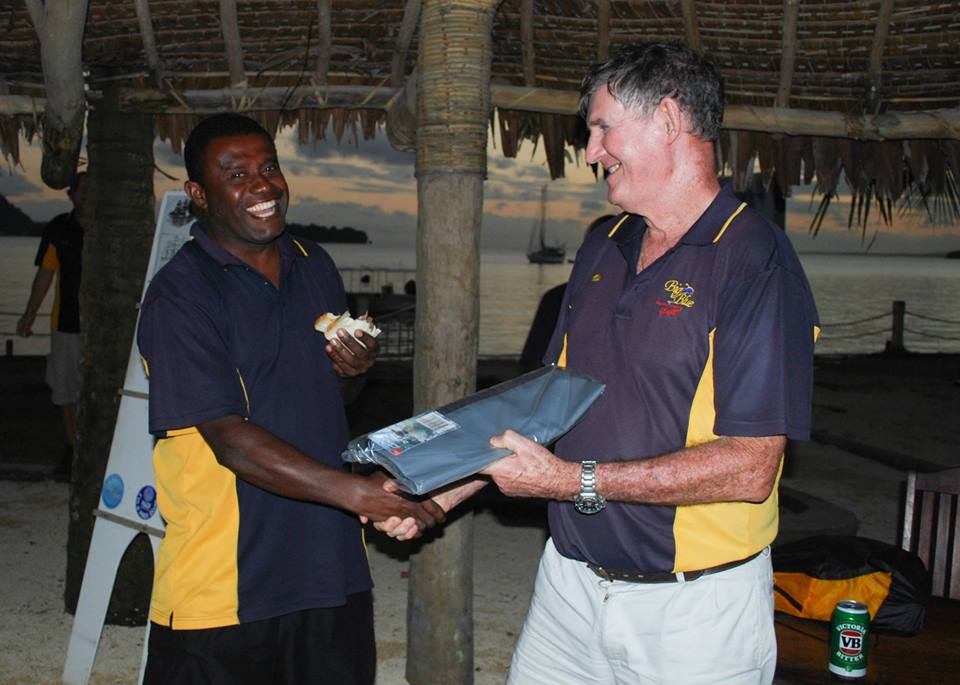 Be the Change You Want to See for the Ocean
Be the Change You Want to See for the Ocean
Don’t underestimate the ripple effects of your actions! Dive Against Debris recognizes the power of the global dive community as citizen scientists and change makers. The tools and resources available to conduct successful Dive Against Debris surveys (translated in 12 languages) empower divers to take action to create both local and global change for the ocean and the communities who depend on it.
In 2011, we created this entirely new program and not only there’s nothing in the world like it, nobody else in the world collects underwater debris data at this scale. Now over 50K scuba divers do! The results: #OneMillionLess and many success stories like Vanuatu across the globe are starting to emerge.
What’s Next? #NextMillion2020
In 2019, we are taking a stronger stand against debris in the ocean to reach our next million pieces of debris reported to Dive Against Debris by the end of 2020. We need divers all around the world to put their scuba skills to good use and make Every Dive a Survey Dive.
We are increasing our ambition to remove and record more marine debris faster than before, and we’ll also be analysing all the data that has been submitted to us to try to answer some fundamental questions on how marine debris interacts with ocean habitats, and, more importantly, to come up with potential solutions.” says Ian Campbell, Project AWARE Associate Director Policy and Campaigns.
Project AWARE’s conservation strategy for a return to a Clean and Healthy Ocean, including Dive Against Debris, is in alignment with the United Nations Sustainable Development Goals (SDGs) in a number of target areas.
Achieving the SDGs is critical to building an inclusive, sustainable and resilient future for people and planet. Collecting and analyzing Dive Against Debris data can help local communities and countries support the implementation of the SDGs.
Every piece of information, every survey submitted is a key part of the marine debris jigsaw puzzle. Collectively our actions add up to big results and take us one step closer to a return to a clean and healthy ocean.
Not only #OneMillionLess, the power of our global community of debris activists and the 50K Dive Against Debris participants behind the data were key to providing an immediate relief to underwater habitats and marine life through the direct removal of debris, they also contribute to building the evidence necessary to advocate for change and work towards solutions in the long-term.
Header Photo courtesy of Graham Crumb, Wikimedia Commons Images



